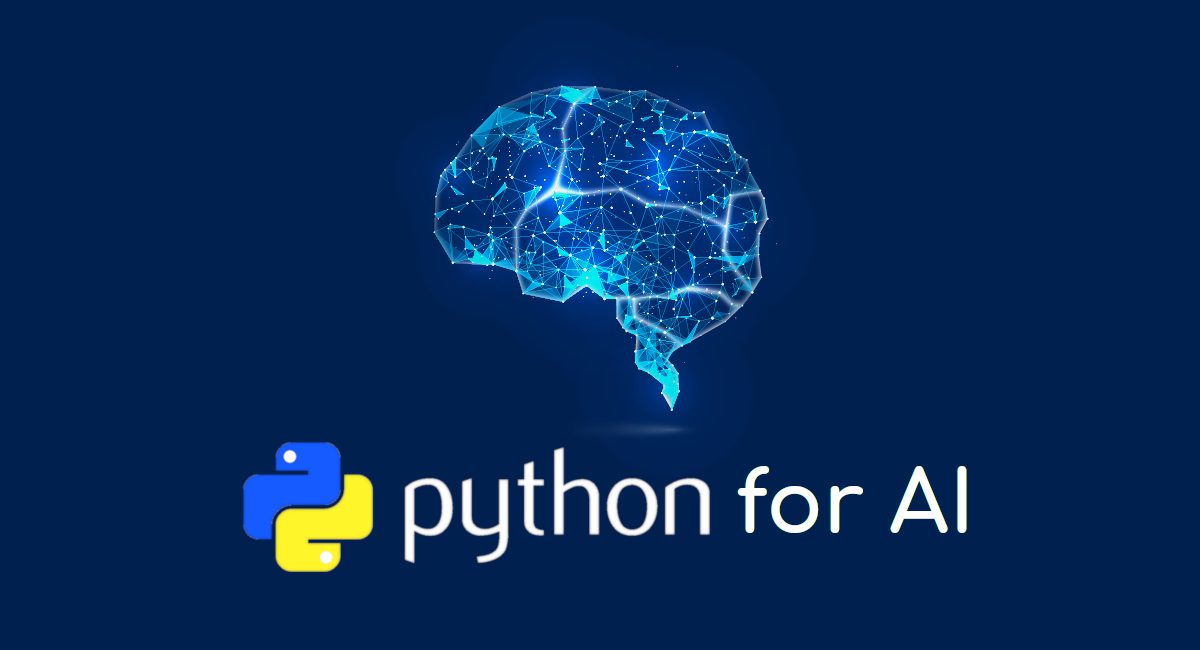Python is among the most-used programming languages on the globe. Developed in 1991, Python has been useful for new-age technologies also. Python is helpful for new-age technologies like AI (Artificial Intelligence) and machine learning. AI algorithms can be developed easily with Python as compared to other programming languages.
Most of the companies and AI experts find Python easy than other programming languages. Python has left behind some popular programming languages like C and Java when it comes to AI. Read on to know five steps to master Python for AI.
- Learn the basic concepts of AI
Before you start making AI algorithms with Python, you should know basic AI terminologies. You should know different types of learning methods for AI algorithms, agents, environment, and other basic things about AI. You do not need to know everything about AI initially. Learning AI with Python is the perfect way to become an expert. However, you need to know the basic AI terminologies beforehand.
Getting your concepts cleared is of utmost importance. You cannot become an AI expert if you don’t know much about the basics. Knowing the basic concepts of AI and its importance is as important as knowing the complex concepts.
- Learn the syntax of Python
For every programming language, you first learn its syntax. The syntax can be referred to as the code writing style which is different for each language. Python is chosen by AI experts because it has a simple syntax and involves less coding. You need a way of writing code in Python first to master it in the future. It won’t take much time to learn the syntax of Python. You can join an online Python course to learn quickly.
- Join an online course for AI with Python
You need to go for an online course for AI with Python to master it quickly. An industry-oriented course can help you in learning Python for building smart AI algorithms. Imarticus Learning is a reliable source that can provide you with artificial intelligence and machine learning certification. With a globally-recognized artificial intelligence and machine learning certification, you can also get a job as an AI expert.
 Imarticus provides an artificial intelligence course that helps you earn a job. The Certification in AI & ML gives you a chance to learn according to the curriculum of IIT Guwahati. You can learn from a premier institute of the nation from your couch with Imarticus Learning.
Imarticus provides an artificial intelligence course that helps you earn a job. The Certification in AI & ML gives you a chance to learn according to the curriculum of IIT Guwahati. You can learn from a premier institute of the nation from your couch with Imarticus Learning.
- Know about Python libraries for AI
Python has many built-in libraries for AI which makes the task easy. A python library is a pre-existing chunk of code that can be used time and again for your AI projects. Python libraries save your time when working on AI projects. Some of the Python libraries used by AI professionals are NumPy, SimpleAI, SciPy, Matplotlib, etc. Make sure about the function and capability of each Python library for AI. It can save you time when designing AI algorithms.
- Work on some AI projects with Python
Choose a Python course that allows you to work on AI projects. Working on AI projects can help you learn Python more quickly. You would not want to make mistakes as an AI employee. It is better to make mistakes beforehand and learn from them by working on AI projects. The AI course offered by Imarticus lets you work on around 25 industry-related projects.
Conclusion
Python is a simple programming language that is easy to use and learn. It is why many AI experts choose Python for boosting their productivity. You can learn about the role of Python in AI via the online course offered by Imarticus. Start your artificial intelligence course right away!


